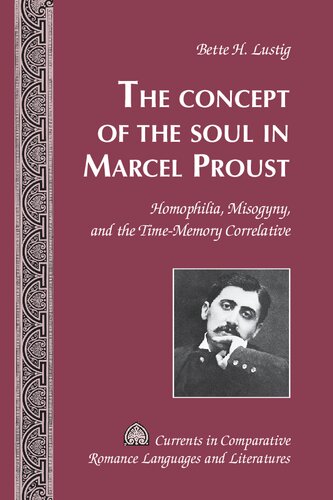Product desciption
The Concept Of The Soul In Marcel Proust Homophilia Misogyny And The Timememory Correlative Bette H Lustig by Bette H. Lustig 9781433131899, 1433131897 instant download after payment.
The concept of the soul in Platonic, Ciceronian, and Talmudic thought segues into the Celtic tradition, Thomas Aquinas, and Maeterlinck and threads its way through the tapestry of Proust’s narrative and his principal characters. Bette H. Lustig uses a hermeneutic approach to the Proust texts, which are cited in French, and provides the analyses of the texts in English. Themes treating the soul include metempsychosis (transmigration), imprisonment and deliverance, eroticism and sadism, homophilia and misogyny, and time and memory. Moreover, the Celtic tradition is evident in the metempsychosis of souls to plants, animals, and inanimate objects, and their yearning to be delivered through a random encounter.
Homophilia and misogyny are pendant themes. The strong preference for male company is articulated through gestures and choices by both author and characters. In Proust, homophilia leads to misogyny: disparaging, controlling, even abusive attitudes toward the souls of women, which are demonized and imprisoned. Their souls, provisionally free in sleep, do not reach total deliverance until death. The ecstasy of Platonic mystical union is shown only between two males.
The soul of time travels at its own pace: by urgency, by seemingly slow passage, in narrative interruption or digression, chronological inversion, and in privileged moments. The soul of memory is present in odors or fragrances. Like Aquinas’s substratum soul, it connects past and present. Its enemy is forgetfulness. Time and memory are also correlated in collective memory. Presented in a clear, lively style, this book would be excellent in courses on Proust, French literature, religion, philosophy, psychology, and sociology.


